Paris 2024 Olympics: Gender Equality Struck, but the True Triumph Remains Unwon

For the first time in the 128-year history of the Olympics, the organizers achieved a 50% gender balance at the Paris 2024 Olympic Games. This milestone marks the first time that full gender parity has been reached, with equal representation of male and female athletes in all events. The Games, held from July 26 to August 11, 2024, saw participation from 206 countries across 128 sports, making it one of the most diverse and inclusive Olympics ever.
Despite this achievement, Yanis Exarchos, CEO of the Paris Olympics Broadcasting Service, acknowledges that the Palestinian Observatory “Tahaqaq” continues to monitor instances of harassment, hate speech, and misinformation, particularly targeting female athletes and their performances.
Misinformation on the Gender Identity of Algerian Boxer Iman Khelif
Western media outlets, political activists, influencers, journalists, and social media users have cast doubts on the gender identity of Algerian boxer Iman Khelif, falsely claiming that she is a transgender man rather than a biological woman. Allegations regarding her testosterone levels surfaced during the 2024 Olympics, as well as the previous 2023 tournament, where she was disqualified from the World Boxing Championships in New Delhi, India, due to her testosterone levels. However, this year, the International Olympic Committee in Paris cleared her to participate.
This controversy sparked widespread harassment and criticism against Khelif, with many questioning her gender identity and using the issue to attack her athletic integrity.
 |
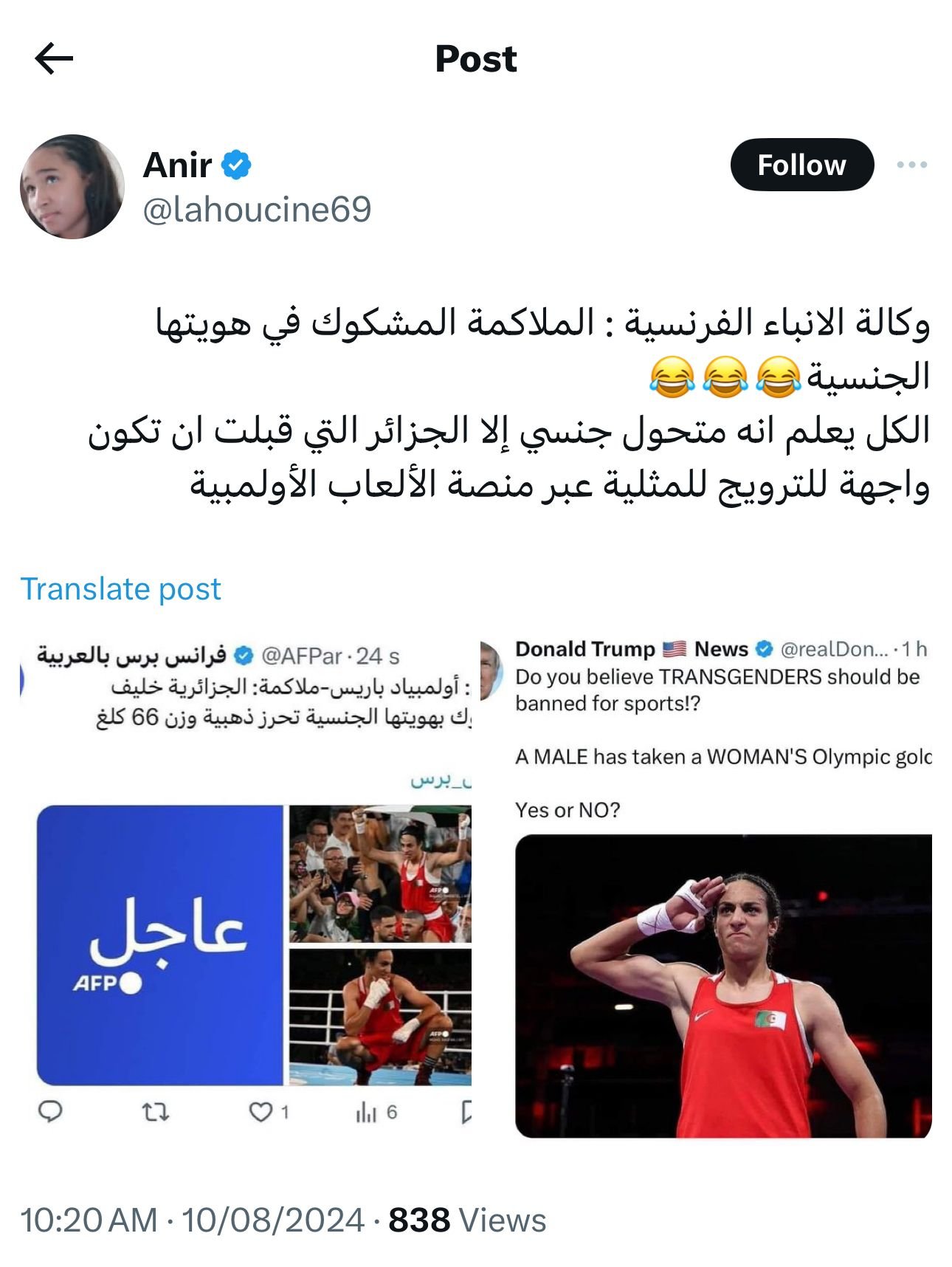 |
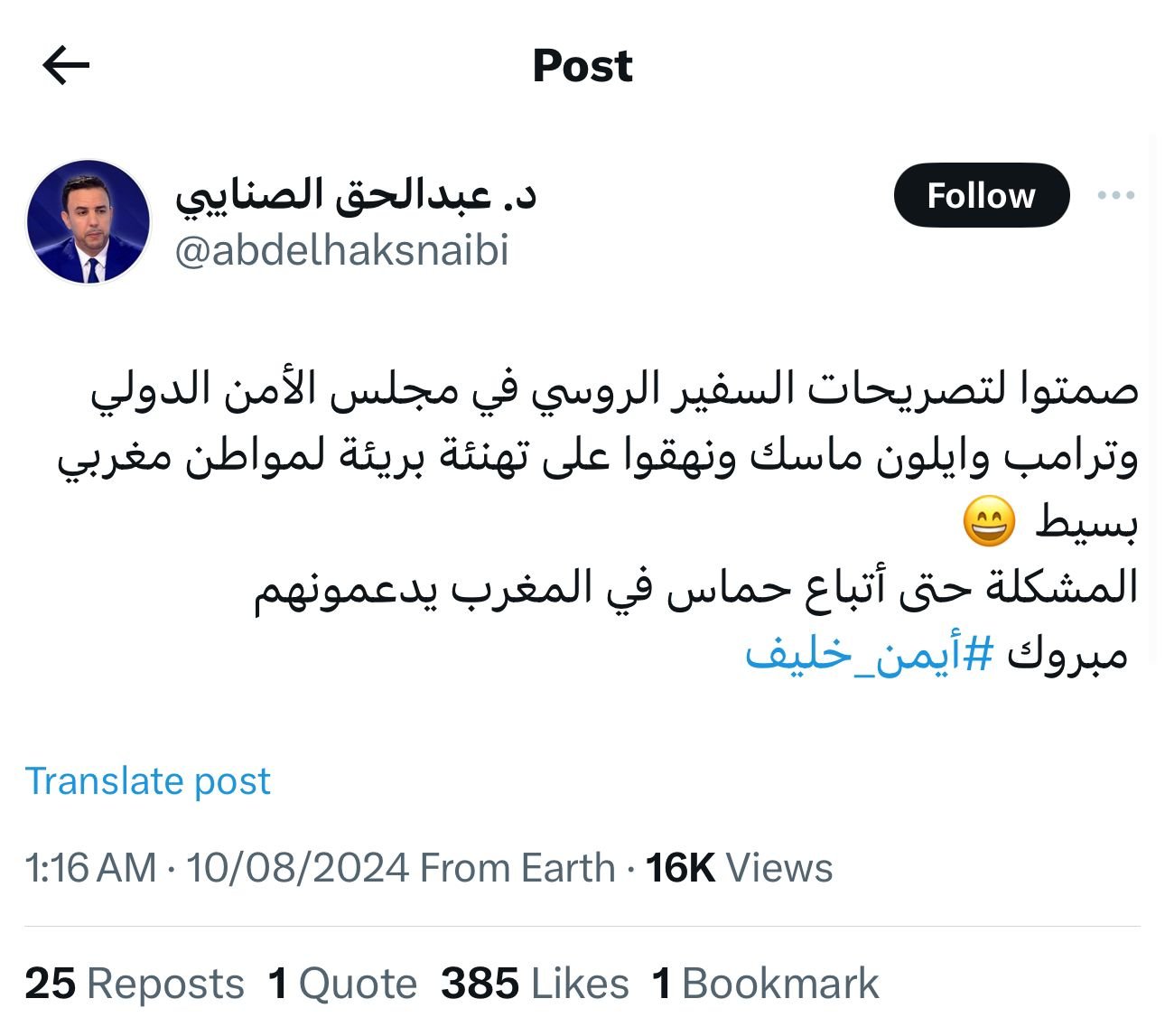 |
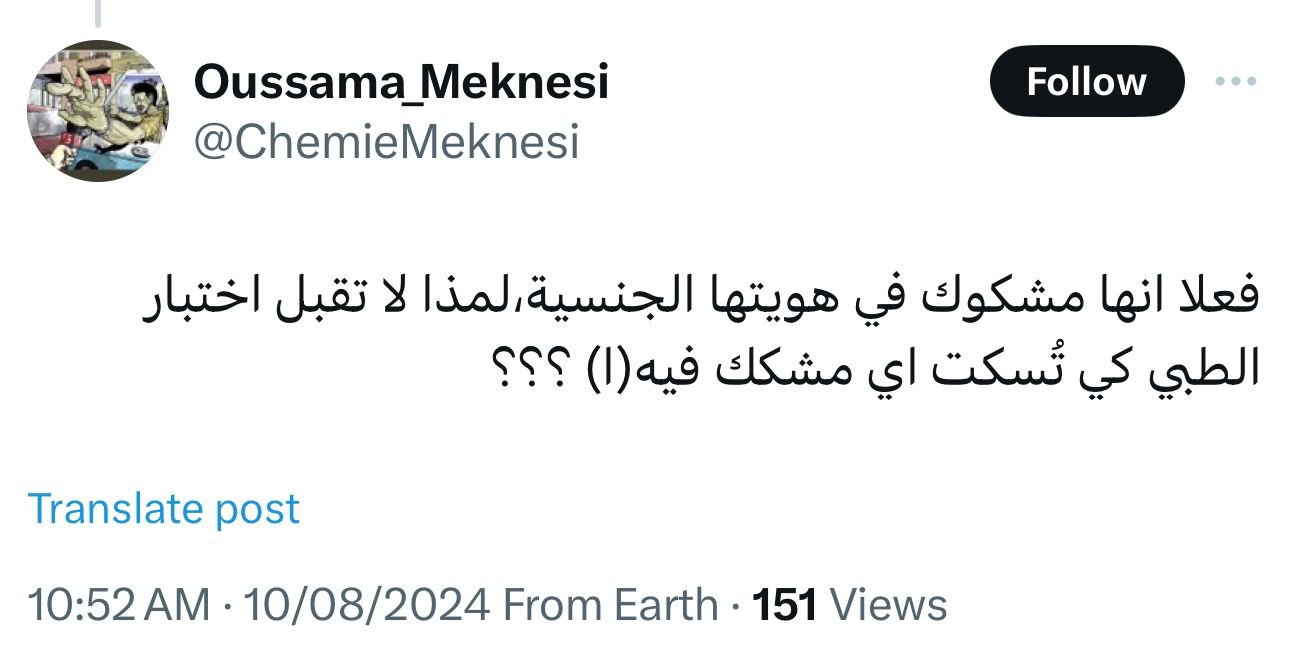 |
For example, AFP published a report that included doubts about her gender identity, which was steeped in hate speech. The report, initially posted after her victory in the 66kg weight category, referred to her as “suspected of gender identity issues,” but it was quickly removed from their platforms, and eventually from their website as well.
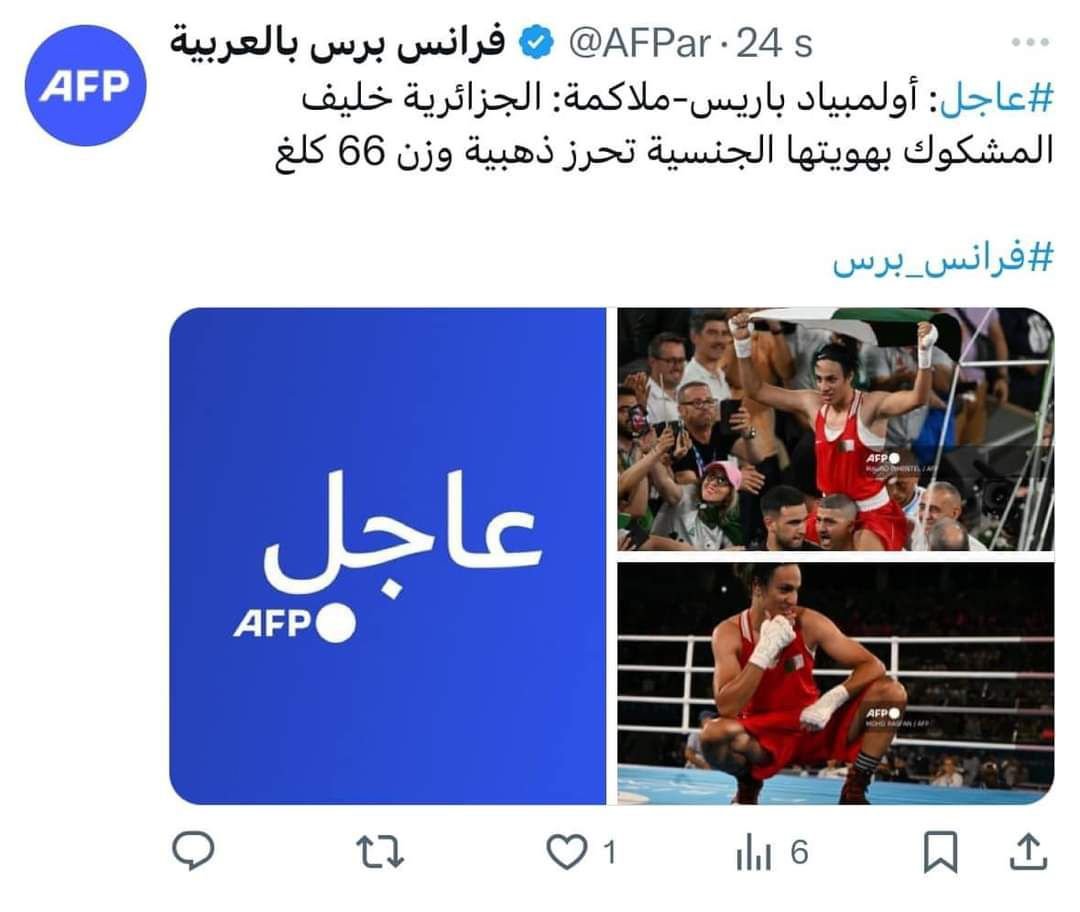 |
 |
Public figures like former President Donald Trump, Elon Musk (owner of “X”), and author J.K. Rowling also fueled the narrative that Khelif is a man. Trump made this claim also during a campaign rally at the Georgia State University Convention Center in Atlanta, Georgia, on August 3. Additionally, J.D. Vance, the vice-presidential candidate on Trump’s ticket, shared a video of Khelif’s match on his “X” account, labeling Khelif a man and condemning Vice President Kamala Harris’ stance on gender as “disgusting.”
 |
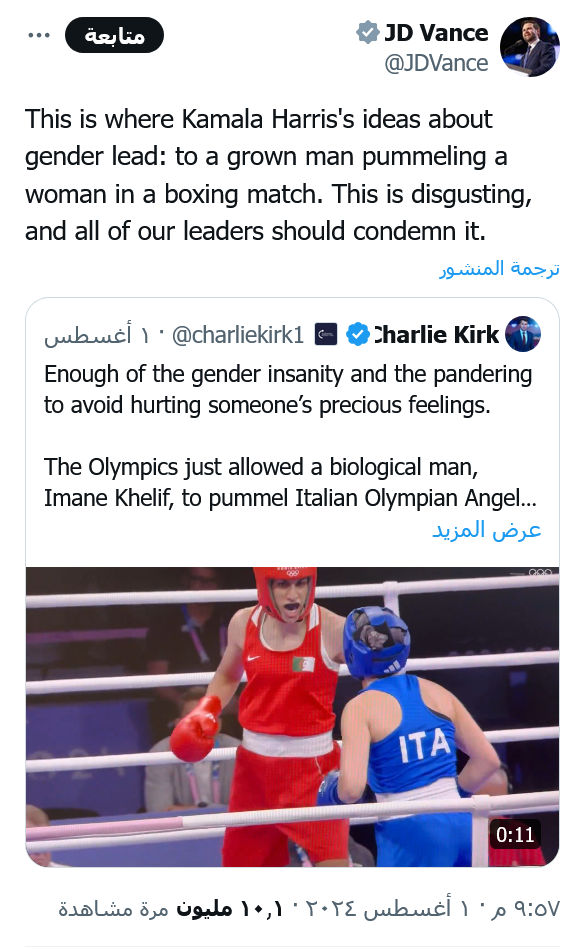 |
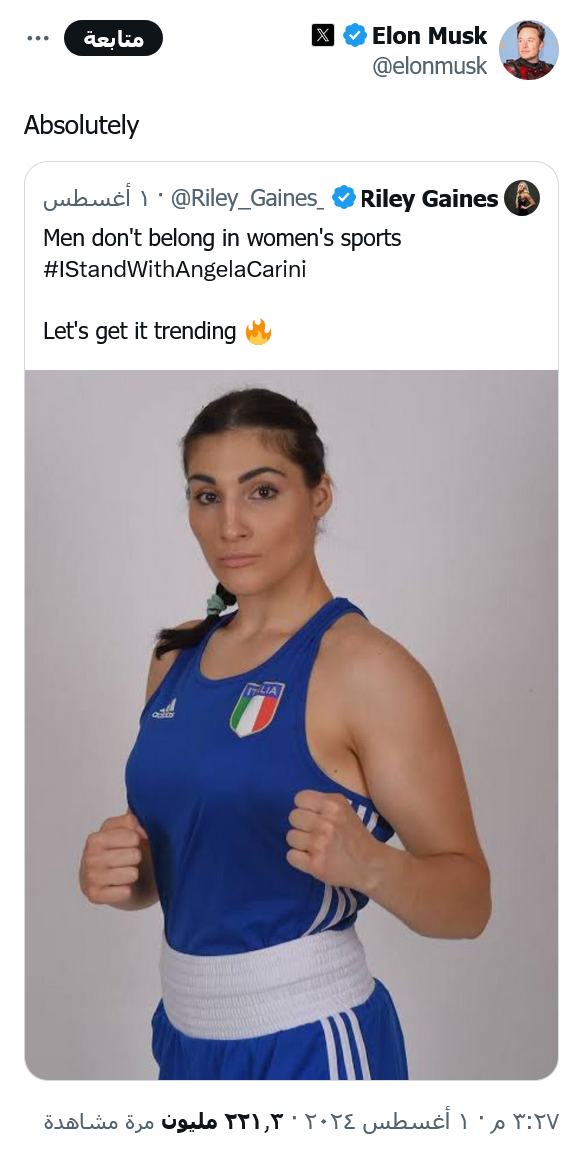 |
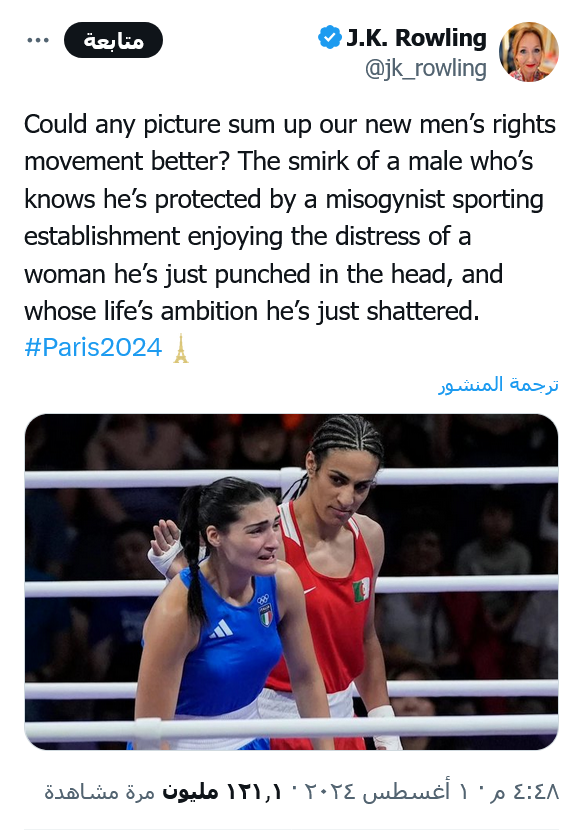 |
British journalist Piers Morgan also commented on Khelif’s win, stating, “A biological man has just won the Olympic gold medal in women’s boxing—congratulations to everyone who supported this farce.” However, he later deleted the comment. These public statements were followed by a flood of tweets filled with hate speech and harassment against Khelif, referring to her as “the boxer” instead of “the boxer” in a gendered manner
Iman Khelif: An Algerian Woman, Not a Transgender Man
Iman Khelif is an Algerian woman who grew up in rural Algeria. She raised funds for a six-mile journey to the nearest boxing gym by selling bread on the streets. Khelif placed fifth at the Tokyo 2020 Olympics and won the gold medal at the 2022 African Championship in the Light Welterweight category, with an overall record of 9-38 kg.
Her performance at the Paris 2024 Olympics was met with great enthusiasm, but soon after her victory in the opening match against Italy’s Angela Carini—who quit after just 46 seconds—Khelif faced widespread controversy. However, these allegations lack evidence and context, particularly regarding Olympic eligibility requirements, her previous disqualification, and the unverified DNA tests reportedly conducted by the International Boxing Association.
Khelif has always competed as a woman and has never declared herself to be transgender. The spokesperson for the International Olympic Committee, Mark Adams, stated in a press briefing on August 2 that Khelif was born female, registered as female, lived her life as female, and competed as female, with a female passport. This was further confirmed by IOC President Thomas Bach, who staunchly defended Khelif’s participation in this year’s Olympics, stating there was no doubt about her gender and that the IOC was prepared to investigate the matter but would not engage in politically motivated cultural wars.
The Algerian Olympic Committee also condemned the attacks against Khelif in a statement issued on August 1, saying, “These defamation attempts, based on lies, are completely unjust, especially at a crucial time when she is preparing for the Olympics, the pinnacle of her career. The Algerian Olympic and Sports Committee has taken all necessary measures to protect our champion,” according to the statement.
A fact-check conducted by “USA Today” also confirmed that Khelif is a woman and not transgender, nor does she identify as intersex, according to GLAAD and InterACT. The organizations clarified in a fact sheet issued on Friday that Khelif has Differences in Sexual Development (DSDs), which is not the same as being transgender. DSDs are a group of rare conditions involving genes, hormones, and reproductive organs that can cause a person’s sexual development to differ from others. Sometimes, this can result in a person having XY chromosomes but developing as female, according to the National Health Service.
Sports Commentators and Journalists Perpetuating Stereotypes and Gender Bias
Despite the evident success of female athletes during competitions, some commentators continue to make sexist remarks that reinforce prevalent stereotypes about women, which has led to backlash against these commentators.
“Tahaqaq” monitored two cases. The first involved British commentator Bob Ballard, who sparked widespread controversy with his comments on the Australian swimming team’s performance in the 4x100m freestyle relay after their victory. Ballard remarked live on air that the female swimmers would “go fix their makeup” after finishing the competition. As a result, he was suspended from “Eurosport” and posted two tweets on his “X” account. In the first, he stated, “It was never my intention to upset or belittle anyone, and if I did, I apologize. I am a strong supporter of women’s sports.” In the second, he said, “I will miss the Eurosport team dearly and wish them all the best for the rest of the Olympic Games.”
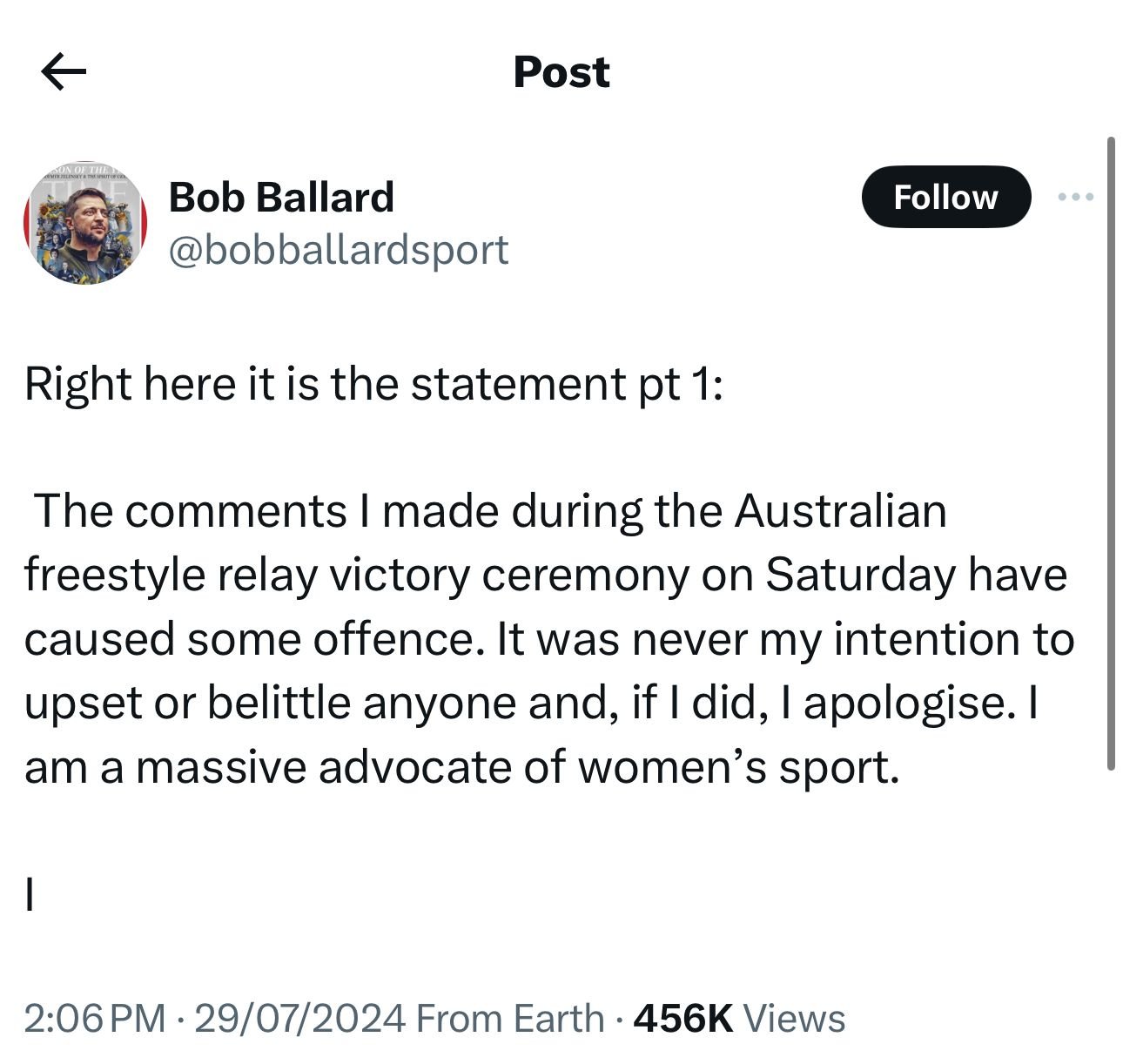 |
Although he acknowledged his mistake, platforms like “365Radio” supported him through a tweet on their “X” account, stating that they fully support him and that the reaction to his comment was exaggerated, justifying his remark as mere “humor” rather than a mistake.
In another instance, on July 30, French commentator Bernard Guénin from “RMC Radio” faced severe criticism for his comment, which used the term “housewives” to describe a female tennis player during a doubles match between France’s Caroline Garcia and Diane Parry and Italy’s Sara Errani and Jasmine Paolini. Guénin said, “On the left, there’s Sara Errani, she’s the boss, she does everything: the dishes, the cooking, the cleaning,” in a clear case of harassment.
In contrast, the French Association of Women Sports Journalists and the Union of Women Sports Journalists in France condemned Guénin’s comment in a joint statement on Thursday, saying, “Sexist and anti-women comments have no place in international competition.” Although they did not explicitly call for sanctions against him, they reminded the public of the suspension of British commentator Bob Ballard after his remarks during a swimming event at the Paris Olympic Games.
Sexually Suggestive Images and Videos of Female Competitors
Despite warnings from Yanis Exarchos, CEO of the Paris Olympics Broadcasting Service, to photographers against capturing “sexually suggestive” images of female competitors, urging that coverage of both genders should be treated equally, the problem persists.
Exarchos noted that despite the instructions given to photographers since last year, the past few days have revealed that some still attempt to capture such images of female athletes. Last week, the official Olympic Broadcasting Service had to warn camera operators against filming female athletes in a sexually suggestive manner or framing them in such ways.
However, Exarchos acknowledged that women are still being photographed in some events in ways that perpetuate stereotypes and suggest that sexism remains pervasive. He added that female Olympic athletes are often judged based on their appearance rather than their performance.
“Tahaqaq” tracked several accounts on the TikTok platform that publish “sexually suggestive” clips of female athletes’ bodies during competitions and training. These clips show the athletes’ bodies from specific angles, generating hundreds of thousands of views. For example, a video showing the russe high jumper Elizaveta Petrova has garnered over 100k views, while other clips have received between 100,000 and 200,000 views on other accounts.
 |
The comment sections on these videos are filled with sexist and misogynistic remarks about female athletes. After monitoring the comment sections on over 100 posts, it became evident that some users have taken it a step further by directly commenting in a sexually suggestive manner on the athletes’ official social media accounts, especially their Instagram pages.
 |
 |
 |
 |
Female Athletes in the Media
Despite the tremendous growth and popularity of women’s sports, female athletes are still viewed as inferior to male athletes. There remains an obsession with the bodies of female athletes rather than their athletic skills.
According to a study by “ScienceDirect” on how media coverage influences gender disparity in sports, media coverage often reinforces gender stereotypes, focusing more on the appearance of female athletes rather than their athletic achievements. Female athletes are frequently presented through the lens of beauty or traditional female roles, which diminishes their athletic accomplishments and perpetuates negative stereotypes about them.
Sports coverage is incredibly powerful in shaping norms and stereotypes about gender, and the media has the power to set these standards, promoting balanced coverage of both male and female sports and fair portrayal of athletes—regardless of gender. Women in sports, especially those who excel on a global level, face additional challenges due to biased commentary and stereotypical portrayals. These challenges can affect how they receive the proper support and respect they deserve and may prevent them from accessing equal opportunities in media coverage and sponsorship, according to the study.
In conclusion, the Paris 2024 Olympics may have achieved gender parity in terms of athlete participation, but there is still much work to be done to address the ongoing gender bias and negative portrayals of female athletes in the media. By challenging these stereotypes and promoting fair and respectful coverage, we can create a more inclusive and equitable environment for all athletes, regardless of gender.

